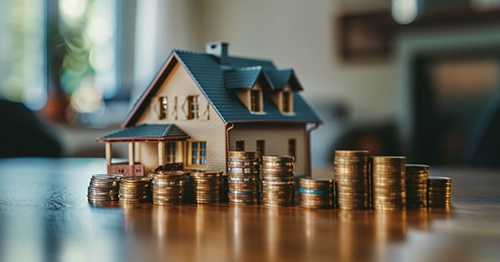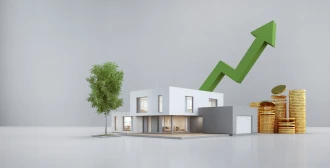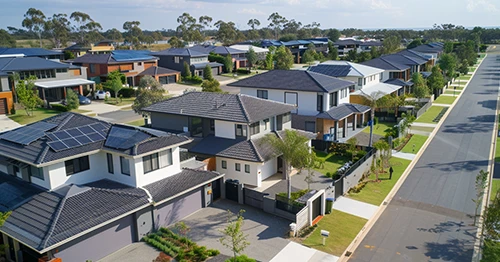Updated: 27 Nov, 2024
At Home Loan Experts, we have mortgage brokers who are specialists in all niches. Plus, they’re legally obligated to act in your best interest. This means they’ll consider your financial situation and recommend loan products that are suitable for you. Our expert brokers regularly answer consumers’ most frequently asked questions about home loans. Check them out to get all the answers you need.
1. What Interest Rate Am I Eligible For, And What Is The Maximum Amount I Can Borrow?
The interest rates a lender will offer you and the amount you can borrow are affected by some of the same factors. Interest rates are affected by the official cash rate set by the RBA and each lender’s own rates and lending policies. The stronger your home loan application, the better the rates lenders will offer you. The strength of your loan application is determined by how much deposit you can pay, your Loan-to-Value Ratio (LVR, the lower the better), what kind of credit rating you have, and other factors. How much you can borrow is also affected by the RBA’s decisions. The lender will assess your serviceability – your ability to repay the loan. Higher interest rates mean higher repayments and that means the more rates go up, the less you’ll be able to borrow. Other factors lenders will use to determine your serviceability include your credit history, income, expenses and other financial commitments. Check how much you can borrow through our borrowing capacity calculator.If you want to know how much money you can borrow from a certain lender, please get in touch with our mortgage brokers at 1300 889 743 or fill out our free assessment form.
2. What Government Grants Are Available? Can I Qualify For Any?
There are several government grants available to assist first-home buyers in Australia. As of 2023, some of the major national government schemes for first-home buyers include the Help to Buy Scheme, First Home Guarantee (previously known as First Home Loan Deposit Scheme), Family Home Guarantee, Regional First Home Buyer Support Scheme, and the First Home Super Saver Scheme. Eligibility for these schemes can depend on various factors, including your income, the property’s value, the location of the property and whether you are a first-home buyer.
3. What Refinance Or First-Buyer Cashback Can I Get?
Lenders may offer cashback incentives to those who refinance. The amount of cashback offered can vary by lender and may depend on the amount you are refinancing. You can find all of the current offers on our refinance rebates page. Cashback offers are also available for first-home buyers. You can check for offers on our purchase cashback page.
4. Do I Have Any Equity In My Home?
This question is a common one for homeowners who are curious about the current value of their property and how much equity they have built up over time. Equity is the difference between the market value of your home and the amount you owe on your mortgage. To determine how much equity you have, you can have an appraisal done on your property or use our property equity calculator to estimate the value.
5. I Have Recently Been Employed. Do I Need To Be Three Months In This Job To Be Eligible For A Home Loan?
Many lenders prefer to see at least three months of continuous employment in the same job or industry before considering an application for a home loan. However, some lenders may consider less than three months if you can provide evidence of strong employment history and stability. It is important to note that each lender has its own criteria for assessing loan applications, and meeting the employment requirement does not guarantee approval.
6. Should I Consolidate My Personal/Car Loan Into My Home Loan?
Consolidating your personal or car loan into your home loan can simplify your debt repayments and lower your overall interest rate, but you may end up paying more interest in the long run. There may also be cashback options available depending on the type of debt.
7. Can I Buy/Build Property On A Temporary Visa?
In most cases, temporary visa holders will need to pay additional fees, such as foreign buyer surcharges and stamp duty, on top of the property price. Some lenders may require you to have a specific type of visa and a minimum period remaining on your visa before they consider your application. You may also need FIRB approval. Some temporary visa holders may not have a large enough deposit to purchase a property. In these cases, a mortgage broker can help them with a ‘prepare to buy’ plan.
8. Can I Get A Cheaper Rate As A Foreign Investor?
No, as a foreign investor, you may actually end up paying higher interest rates than Australian citizens and permanent residents. The Australian government imposes additional fees and taxes on foreign property investors, which can make it more expensive to obtain a mortgage.
9. Should I Go For Fixed Or Variable?
Whether a fixed or variable interest rate is best for you depends on your financial goals and current interest rate trends. A fixed interest rate provides certainty on repayments, while a variable interest rate can allow you to reap the benefits if interest rates fall. Additionally, variable-rate home loans often allow for unlimited extra mortgage repayments, whereas fixed rates generally allow, at most $5K-$10K a year.
10. Can I Apply For A Loan If I Have Been Part IX Debt Discharged?
If you’ve been Part IX (9) debt discharged, you may still be eligible to apply for a loan, including a land and construction loan. However, it’s important to note that you may face higher interest rates and have fewer lender options available to you. In most cases, specialist lenders are the only ones who offer loans for individuals with a history of debt discharge.
Talk To An Expert!
Looking for expert guidance on home loans or have questions related to the process? Don’t hesitate to contact us at Home Loan Experts! We are here to assist you every step of the way. Call us on 1300 889 743 or enquire online for free and let us help you achieve your dream of owning a home.





